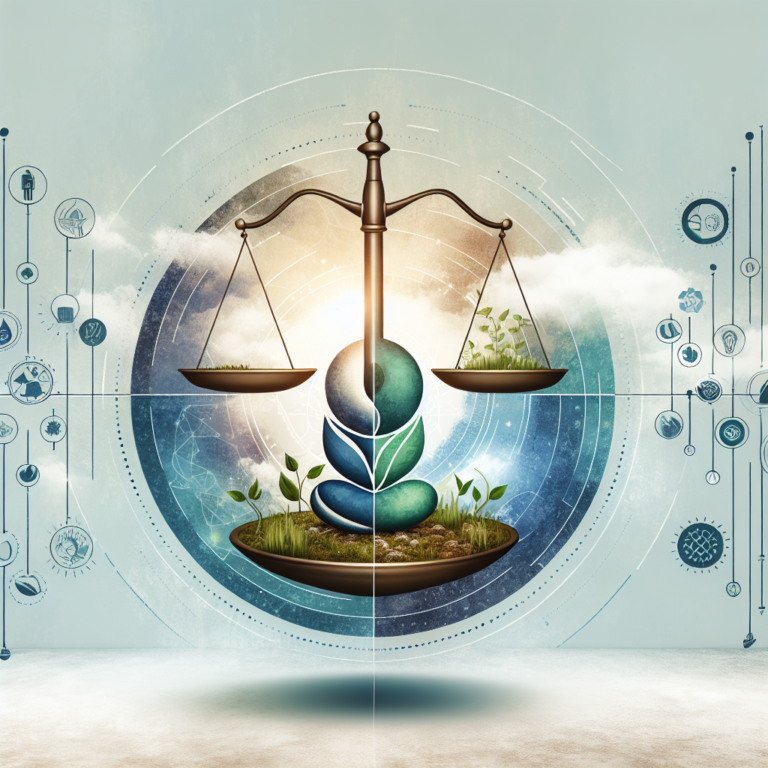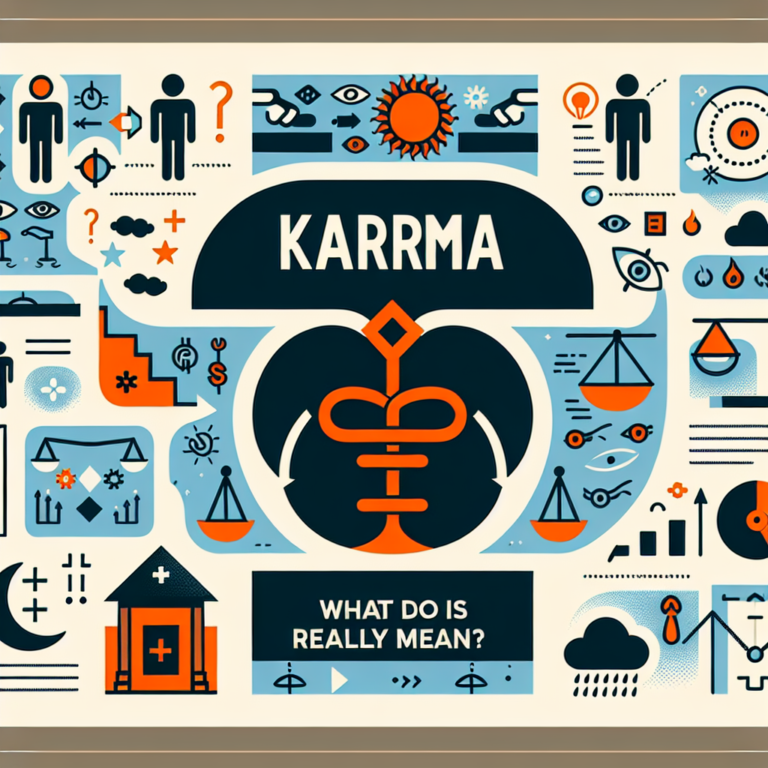In an age where chaos and negativity often dominate headlines, the idea of positive karma can be a beacon of hope. Positive karma, often described as the cumulative effect of our actions leading to beneficial outcomes, suggests that even small acts of kindness can set off a ripple effect that changes lives and communities. This article delves into the concept of positive karma, exploring how simple gestures can create profound impacts and discussing ways to incorporate kindness into our daily lives.
Understanding Karma
Karma originates from Eastern philosophies, particularly Hinduism and Buddhism. It is based on the principle that our actions (good or bad) have consequences. Good deeds create positive karma, leading to favorable circumstances, while negative actions breed misfortune. This principle of reciprocal causality underscores interconnectedness among all individuals, implying that our actions affect not just our own lives but also the broader community.
While some may regard karma as a spiritual or metaphysical concept, it can also be viewed through a more practical lens. We can observe the tangible effects of kindness and positive actions every day. Small acts—like holding the door for someone, complimenting a stranger, or offering support to a friend—can accumulate and create a culture of kindness that spreads like wildfire.
The Ripple Effect of Kindness
The ripple effect is a powerful illustration of how a single act of kindness can proliferate through a community. Consider a scenario where one person helps another. That recipient may feel inspired to pay it forward, creating a chain reaction of positive interactions. Research in psychology supports this notion, indicating that witnessing acts of kindness can encourage others to engage in similar behaviors.
-
Moral Responsibility: When someone witnesses kindness, it reinforces the notion that they too have a role to play in creating a positive community. This sense of responsibility often translates into active participation in kindness.
-
Increased Happiness: Engaging in kind acts often leads to increased levels of happiness and community satisfaction. When we help others, we trigger the release of "feel-good" hormones like oxytocin and endorphins in our brains. This not only affects us positively but influences those around us.
- Strengthening Bonds: Kindness fosters connections. When we engage in small, kind acts, we enhance our network and build stronger relationships, leading to more robust social structures.
Examples of Small Acts of Kindness
-
Compliments: Genuine compliments can drastically improve someone’s day. Instead of keeping positive thoughts to ourselves, sharing them can create positive feelings that linger much longer than the moment itself.
-
Acts of Service: Simple acts like helping a neighbor with groceries or volunteering at a local charity can profoundly impact both the giver and recipient.
-
Listening: Taking the time to listen to someone’s plight without interruption can be a powerful act of kindness. Being present provides support and validates feelings, which can be deeply healing.
- Random Acts of Kindness: These can be as simple as buying coffee for a stranger or leaving positive notes in public places. Such acts often create a sense of community and spark joy in unexpected ways.
The Science Behind Kindness
The relationship between kindness and well-being has been extensively studied. Research shows that engaging in acts of kindness can enhance our mental and emotional health, leading to a happier, more fulfilling life. A study published in the journal "Psychological Science" found that individuals who regularly perform acts of kindness report higher levels of happiness and lower levels of stress.
Moreover, kindness has a contagious effect. People who witness or receive kindness are likely to replicate that behavior, creating a larger network of positive actions. This contagion effect demonstrates how small changes at the individual level can influence cultures and societies at large.
Cultivating a Kindness Mindset
Incorporating kindness into daily life doesn’t require grand gestures. Here are several ways to cultivate a mindset of kindness:
-
Mindfulness: Practice being aware of others and attentive to their needs. This awareness can inspire compassionate responses and encourage kindness.
-
Gratitude: Reflect on what you’re grateful for. Acknowledging positive aspects of your life can shift your focus toward spreading that positivity.
-
Community Engagement: Get involved in local groups or activities. Engaging with your community creates opportunities to witness and practice kindness.
-
Set Daily Intentions: At the start of each day, set an intention to perform a specific act of kindness. This could be as simple as smiling at a stranger or offering help to a colleague.
- Reflect: At the end of the day, reflect on the kind acts you witnessed or engaged in. Consider how they made you feel and the reactions of those around you.
Conclusion
The power of positive karma is a reminder of our ability to influence the world through simple acts of kindness. As ripples in a pond expand outward, so too can our actions create profound changes in our communities. Embracing kindness as a core value not only uplifts others but enriches our lives, fostering connections that strengthen the fabric of society. The journey to a kinder world begins with each of us, one small act at a time.
FAQs
Q1: How can small acts of kindness change someone’s day?
A1: Small acts of kindness can provide emotional support, uplift spirits, and create a positive atmosphere. They can help individuals feel appreciated and valued, often turning a challenging day into a more manageable one.
Q2: Does kindness really have a long-term impact?
A2: Yes, sustained acts of kindness can foster a culture of compassion, leading to ongoing support and goodwill. Individuals who experience kindness are more likely to continue the cycle and engage in kind acts themselves.
Q3: How can I remember to be kind in my busy life?
A3: Setting daily intentions, practicing mindfulness, and reflecting on your thoughts can help you incorporate kindness into your routine. Small reminders or notes on your workspace can keep kindness at the forefront of your mind.
Q4: What are the benefits of being kind to myself?
A4: Practicing self-kindness promotes self-acceptance, reduces stress and anxiety, boosts self-esteem, and can lead to a more positive outlook on life.
Q5: Can kindness really improve my mental health?
A5: Indeed, studies have shown that engaging in kindness can lead to improved feelings of happiness and reduce symptoms of depression and anxiety, contributing to overall mental well-being.
It seems like you might be looking for a writing prompt or a specific type of prompt. Could you please provide more details on what you’re looking for? For example, are you interested in a creative writing prompt, a discussion topic, or something else? Let me know how I can assist you!, #Unlocking #Power #Positive #Karma #Small #Acts #Kindness #Change #World, #Unlocking #Power #Positive #Karma #Small #Acts #Kindness #Change #World, 1735350556, unlocking-the-power-of-positive-karma-how-small-acts-of-kindness-change-the-world





